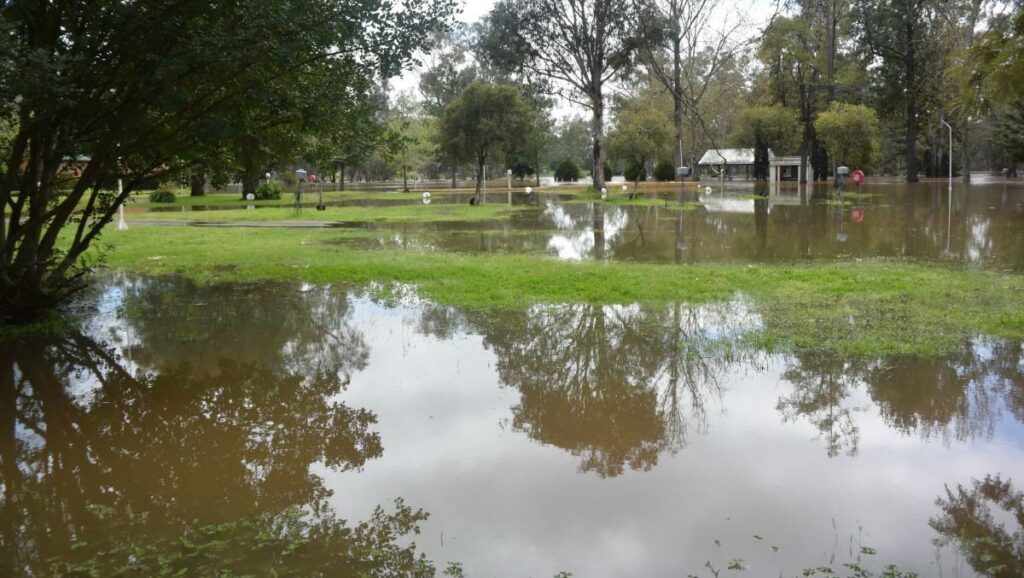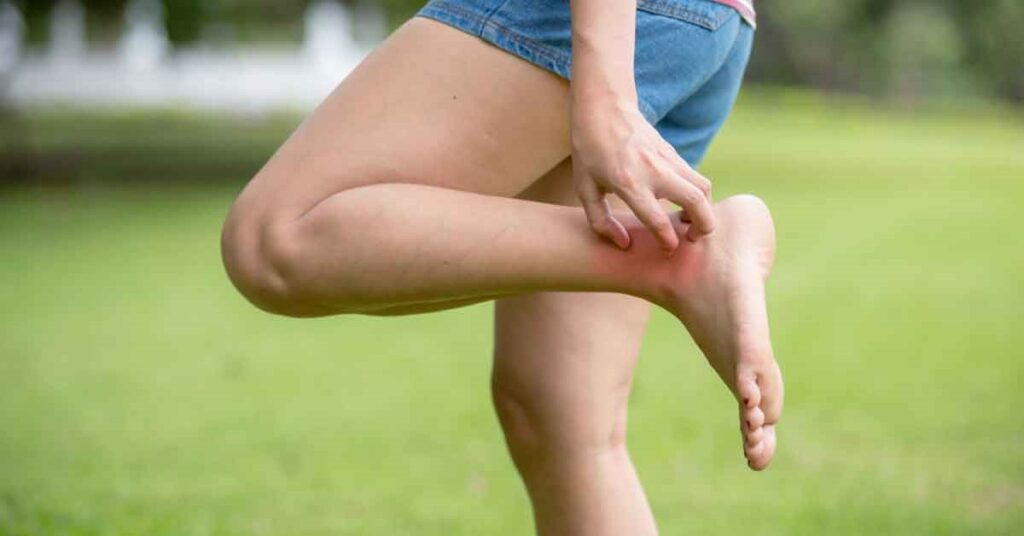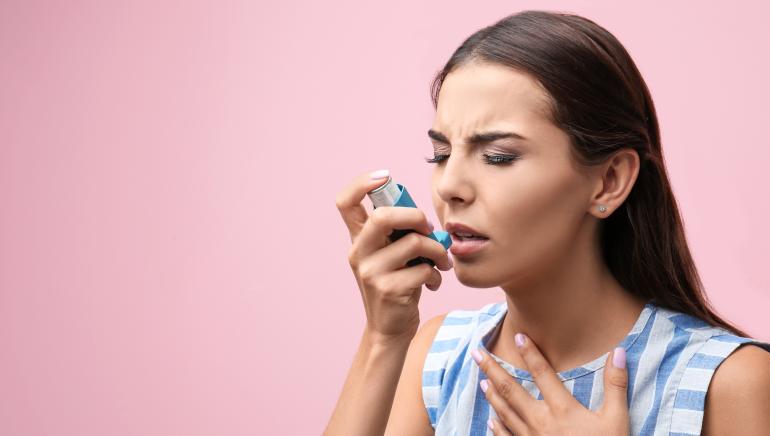
Mosquito numbers are exploding in Australia and Aussies are being bombarded!
These small irritating insects which leave itchy red welts, buzz in your ears and even worse spread disease, are invading the flood affected parts of NSW. The cooler and wetter than usual summer, has led to the mosquito numbers booming. This bumper season is a cause for concern, as it leads to outbreaks from mosquito-borne diseases.

1. Why is there a mosquito explosion now?

Across Australia there has been more than usual rainfall due to the La Nina weather in the Pacific bringing cooler weather and heavier rainfall to north-east Australia over Summer. The floods across central NSW have provided plenty of stagnant water lying around and have created the perfect breeding ground for mosquitoes which are thriving in these conditions.

Mosquitoes need water to lay their eggs and all this water is sitting around for months on end, providing a habitat for mosquito breeding. Stagnant or still water such as ponds, backyard plant containers, clogged gutters, floodplains, or wetlands.

As mosquitos love warmth and water, the mosquito numbers are exploding in Australia’s summer, making this one of the worst mosquito seasons in decades. The warmer and more humid it is once they have emerged as adults, they become more active.
With breeding being at record rates this has prompted concern over the potential spread of viruses they carry. More mosquitoes bring more mosquito-borne disease and raises Ross River virus fears a severely debilitating illness. Some of these diseases are deadly to humans.
Once mosquitoes are indoors, mosquitoes can survive for up to 3 weeks, which is longer than they can live outdoors. If a pair ends up inside the house or a female lays egg inside your home, then you could wind up with a series of mosquito generations inside your home.
2. Why do mosquitoes need bite humans?

Only female mosquitoes bite, they do so to suck blood for reproduction. Blood is a good source of proteins, iron and amino acids and the protein is used to develop their eggs.

Female mosquitoes collect about 3 milligrams of blood per bite and as they need blood to survive, they will get their blood from whatever is around! Yet because they bite you rather than others, being a mosquito magnet means you must not be complacent about using insect repellents!

The male mosquitoes do not bite. They only eat flower nectar, plant sap, and water. Female mosquitoes eat both blood and nectar.
Mosquitoes do not just target humans for blood. They are far more likely to get it from biting animals, birds, or reptiles. They have even been known to bite worms.

Researchers have found a gene that makes some mosquitoes prefer humans over animals. The species Aedes aegypti prefers to bite forest animals, this species can transmit yellow fever and is found in northern Queensland. The Aedes aegypti aegypti has evolved to prefer human blood. Another mosquito family that prefers humans are Anopheles mosquitoes which cause malaria. Fortunately, mainland Australia is still free from yellow fever and malaria.
3. How do mosquitoes find us?

Mosquitoes have many methods to locate us. They are attracted to the ‘smell’ of carbon dioxide which humans and all animals breathe out. They can even detect CO2 even through layers of clothes or blankets. When their senses are stimulated with CO2, a signal is sent to the visual area of the brain making the mosquitoes more accurate when they track visual objects as well, even if their vision is not crystal clear. Female mosquitoes can sense a human being’s exhalation from up to 50 metres away and make a beeline for your skin.

Mosquitoes are also stimulated by body heat and perspiration, especially when exercising. They use their receptors and vision to pick up these cues, then on getting closer, will respond to the smell of a potential blood source’s skin.

You may not be wrong in thinking mosquitoes are out to get you as current studies show that mosquitoes can learn and remember what their hosts smell like! A mosquito’s sense of smell can also find us even in the dark and can operate at long distances even picking up scents more than 30 metres away. So, picking you out from a crowd may come down to your skin smell and heavy breathing!
4. Why do mosquitos choose to bite you?

Mosquitoes are thought to prefer individuals with blood type O and as most people secrete a chemical that signals our blood type mosquitoes are attracted to the odour.
Some studies suggest it is about body size as pregnant women are more likely to be bitten by mosquitoes. Even how hairy you are influence how tough a job it may be of finding a path through to your skin! other factors too play a role in a person’s attractiveness to mosquitoes.

Mostly the main factor in a person’s attractiveness to mosquitoes is the smell of your skin! Beyond any other stimuli the hundreds of chemicals that are emitted by our body’s bacteria create a cocktail of smells that will either attract or deter mosquitoes. Meaning that these insects prefer some people’s skin more than others.

Drinking a beer or eating a banana makes some people more appealing as may lead to more body odour. Mosquitoes use vision (along with scent) to locate humans, so wearing colours that stand out (dark blue, red, or black) may make you easier to find.
Feeling as if the mosquitoes are ignoring you and you are not getting bitten as often as others means they favour the smell of others over you! Recent evidence shows that some people give off masking odours that prevent mosquitos finding them.
4. Which parts of the body do mosquitoes bite?

Mostly mosquitoes will bite any skin they have access to, to get their meal of blood. Yet some prefer certain locations of the body especially thin-skinned area like ankles and wrists.

Mosquito larvae live in stagnant water and adult mosquitoes stay around tall grass, bushes, and weeds. As they are more likely to be low to the ground, so they are closer to your legs and arms rather than your face. Some studies have shown cheese sharing similar bacteria to that found between human toes attracts mosquitoes.

The Aedes aegypti mosquito have learned to bite areas where they are less likely to be detected and target people’s ankles, elbows or backs of necks.
There is no limit to the number of times a mosquito can bite. If undisturbed by air currents or swatting away, a female mosquito will continue to bite until she is full. On consuming enough blood, the mosquito will rest for a couple of days before laying her eggs.

5. When are mosquitoes most active?

Mosquitoes are most active around dawn and dusk. During the early hours before the sun has fully come up and the air temperature is not as hot. Mosquitoes avoid daylight as direct daylight can dehydrate them. They seek out protection from the sun in shaded areas of ponds, woods, and wetlands. For this reason, these are the places to avoid during the day. The Aedes species are active during the day regardless of the UV spectra.

Most mosquitoes bite aggressively in the early evening when the sun has lost its power, and they will bite you long into the night if given the opportunity which is unwelcome news for deep sleepers.
6. How do you avoid Mosquito bites?

Staying away from mosquitoes all the time is impossible if you like the outdoors and fresh air in the house.
To keep mosquitoes at bay: –

- Use mosquito repellent on exposed areas of skin
The most effective chemical repellent, which is considered safe contains DEET, PMD, picaridin or IR3535 insecticide. Lower concentrations are advised for children, but you should watch out for skin irritation. The repellents should not be sprayed around eyes or mouth. As mosquitoes love to bite thin-skinned spots repellent should be sprayed around the ankles, feet lower legs and wrists. Victoria’s Secret Bombshell perfume or Avon’s Skin So Soft Bath Oil has proved effective for a couple of hours too!

- Cover up and wear long sleeves and pants
Dark deep coloured clothes like black, red and deep blue are thought to stand out and attract bugs so lighter coloured clothes are less attractive. Thicker fabrics and clothes that fit looser offer more protection than tightly fitting thin clothing.

- Use a natural repellent
Lemon eucalyptus oil has been used since the 1940’s in Australia. Studies show it offers similar protection to repellents containing low concentrations of DEET. You can also use scents that they dislike like citronella oil, lavender, peppermint oil, cinnamon bark oil, geranium oil, catnip, rosemary, and pine oil.
- Stay indoors during dusk and dawn
Limit exposure during the main feeding times. Stay in air conditioned rooms.

- Use screens on the windows to keep mosquitoes outside
Maintain fly screens on windows, doors, chimneys, and vents. If a hole in the fly screen is found replace it with a new one, generally every year. The screens should be no coarser than 12 x 12 meshes per 25mm or 1.2mm,
Consider having a mosquito net hanging over your bed.
7. How can you limit the mosquito breeding?

- Remove any standing or stagnant water around the house so the mosquitoes cannot lay their eggs. Mosquitoes can breed within 14 days in even the smallest amount of water. Empty bird baths, old flowerpots, bird baths and pet drinking bowls at least once a week and more often in warm weather.

- Clean up your yard removing anything where water can collect such as unused flowerpots, tyres, overturned wheelbarrows, and unused children’s playground toys
- Check that water tanks are completely sealed making sure lids, covers and inlet pipes have no gaps
- Regularly clean and maintain gutters and drains so water runs freely and mend leaking taps

- Fit removable screen mesh to the overflow and outlet pipes. At what temperature do mosquitoes stop biting?
8. Can burning mosquito coils be harmful?

Mosquito coils work in one of two ways. Those that contain insecticides will kill mosquitoes or for those that contain aromatic substances (such as citronella) will repel mosquitoes or reduce the ability that mosquitos will bite people.

The insecticide products used are generally thought of as safe, but it’s the particulate matter produced from a smouldering mosquito coil that poses the greatest risk. Inhaling this can be harmful on your lungs causing lung cancer due to the carcinogens that are given off. It can also set off respiratory conditions like asthma, chronic obstructive pulmonary disease, breathing problems and headaches. The metals in the coils can set off allergies and rashes on the skin.
The chemicals given off can irritate the eyes and can have harmful effects on children. Doors and windows are often closed during the night meaning the particulate matter from burning coils are still around overnight and may cause suffocation to young babies.
9. Do all animals get bitten by mosquitoes?
When humans enter a mosquito habitat, they immediately become the preferred victim for most mosquitoes. Humans are not naturally camouflaged or adapted to stop mosquito bites and even though other animals are less likely to swipe and kill mosquitoes, humans are targeted first.
Animals have a healthy supply of blood and as mosquitoes are opportunistic feeders, they will eat whatever they need to survive and lay their eggs. Although different types of mosquitoes often select different animal.

If no humans are around, mosquitoes feed on wild birds which is why there are so many cross-species fears. If a mosquito bites an infected bird, then bites a human it is possible to spread certain bird pathogens.
Other animals including amphibians, reptiles, snakes, rabbits, squirrels, and other small mammals can also be the target for a mosquito’s need for blood. Mosquitoes also select larger animals such as cows, horses, kangaroos, and wallabies as certain viral infections in Australia have shown.
Human beings complain about mosquito bites constantly, but if animals could talk, they could have similar gripes!

One reason why the deadly Ross River Virus has not been more widespread in Australia is that by the animals the mosquitoes bite dying because of the virus then the disease does not transmit (dead-end hosts) The virus also does not create high levels in the bloodstream and will not spread to another mosquito after the bite.
10. Mosquitoes and Disease.

Mosquito-borne pathogens kill over half a million people a year and make hundreds of thousands of people sick. Remember, it only takes one mosquito bite to transmit a pathogen that could make you sick.

Mosquitoes can carry diseases that may be passed on to people through mosquito bites. In Australia, some of these include, Ross River virus, Barmah Forest virus, Dengue virus and potentially fatal Murray Valley encephalitis virus. Bites from mosquitos carrying Ross River or Barmah Forest viruses can cause pain, rashes, and joint inflammation. Murray Valley encephalitis can cause the brain to swell, leading to brain damage or death.

Just as seriously, the number of mosquito-borne illnesses appear to be increasing in number and severity. Dengue continues to have wide ranging impacts and Australia has also seen extraordinarily high numbers of epidemics of Ross River virus in recent years, estimated at annually about 5,000 cases. Pathogens transferred to humans by the mosquito bite can cause fever which is just one of the symptoms of Ross River virus, muscle pain, joint pain which can last for several months. There is no vaccine or cure, and you can only take pain killers.

